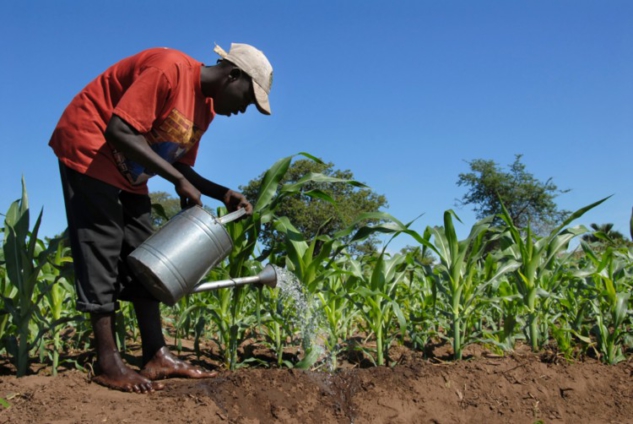The Economic Intelligence Unit (EIU) in its 2019 Global Food Security Index (GFSI) ranked Ghana 59th out of 113 countries in its 2019 index report.
This ranking falls against the 73rd ranking out of 113 countries in 2018. The total performance score improved from 50.9 per cent in 2018 to 68.2 per cent in 2019 – representing 0.3 per cent improvement.
The figures, derived from the annual baseline model, indicates the country recorded key strengths in the presence and quality of food safety net programs as the planting for food and jobs initiative (scored 100 per cent), Change in average food costs (97 per cent), food safety (81.2 per cent), urban absorption capacity (91.2 per cent), volatility of agricultural production (95.5 per cent).
This places Ghana third-best in sub-Saharan Africa with South Africa and Botswana scoring first and second respectively in 2019. When it comes to food availability, Ghana placed second to South Africa with a score of 61.7 per cent.
Meanwhile, the EIU has cited “high expenditure on agriculture research and development as well as a low Gross Domestic Product (GDP) per capita as key challenges the government must consider.
Ghana’s impressive performance follows increased production and high yields of some foodstuffs like maize, rice, sorghum, groundnuts, soya bean, cowpea, cassava and plantain, he said, have led to a decrease in the wholesale prices in market centres in major food-producing areas – all under the Planting for food and jobs programme.
The Global Food Security Index considers the core issues of affordability, availability, and quality across a set of 113 countries.
The index is a dynamic quantitative and qualitative benchmarking model, constructed from 34 unique indicators, that measures these drivers of food security across both developing and developed countries.
This index is the first to examine food security comprehensively across the three internationally established dimensions. Moreover, the study looks beyond hunger to the underlying factors affecting food insecurity.
The GFSI now includes an adjustment factor on natural resources and resilience. This category assesses a country’s exposure to the impacts of a changing climate; its susceptibility to natural resource risks; and how the country is adapting to these risks.
Latest Stories
-
We have a bad technical team; Otto Addo and his team should go – Ernest Thompson
46 mins -
Hindsight: Why Accra Lions’ present problems do not define them
1 hour -
10-year-old Lisa Laryea arrives at Wits Donald Gordon Hospital in South Africa for bone marrow transplant
2 hours -
23 ambassadors inducted to take on 2025 GSTEP Challenge in three regions
2 hours -
Ghana Shea Workers Union inaugurated
2 hours -
I trust Bawumia; he has never lied to me – Akufo-Addo
2 hours -
Bawumia is hardworking; offers the youth platform to share ideas – Kow Essuman
2 hours -
IGP, Police commanders worship with churches in Ghana as part of security arrangements for 2024 elections
3 hours -
Mahama is a failed president; give Bawumia a chance – Akufo-Addo to Ghanaians
3 hours -
‘No child left behind in Free SHS’ – Akufo-Addo declares
3 hours -
MMDAs tasked to pay more attention to TB cases
3 hours -
2024/25 GPL: Defending champions Samartex suffer second consecutive loss as Basake Holy Stars wins 1-0
3 hours -
Government stands firm in Galamsey fight, says Akufo-Addo
3 hours -
National Peace Council assures public of violent free elections
3 hours -
Agenda 111 to be discontinued if NDC comes to power – Akufo-Addo
3 hours

